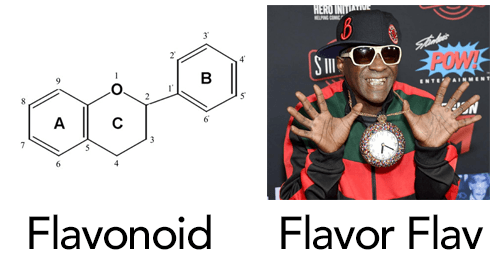Dosage forms dangers, anesthesia sex troubles, supplements for aging, and more
25 May 2023
Posted by Andrew Kantor
A new kind of pain treatment
If you have a rat suffering from neurological pain — perhaps from chemotherapy or diabetes — there’s good news out of Duke.
Autologous conditioned serum (ACS), which athletes apparently swear by to treat sports injuries because of its anti-inflammatory effects, seems to help with rodents’ pain — and the effects are long-lasting, as in several weeks.
What’s weird is that the mechanism by which ACS is thought to work shouldn’t last long, so something else is going on. That something else is exosomes:
Instead, the Duke researchers found that exosomes appear to be the component that gives ACS its durability. These tiny vesicles contain a host of molecules that fight inflammation, including micro-RNAs, and they become highly activated through the conditioning and incubation process of ACS.
Now that they’ve discovered this unexpected mechanism, the Dukians say, “we can explore a number of additional therapeutic uses.”
Short take: better buprenorphine
The FDA has approved Braeburn’s Brixadi — a long-acting injectable form of buprenorphine — “for use in patients with moderate to severe opioid use disorder.”
Change the delivery, change the dose
After a particular type of stroke, patients are often given nimodipine to prevent complications — specifically, delayed cerebral ischemia. But not every patient can swallow a pill, and, found University of Alberta pharmacy researchers, when other delivery methods are used the outcomes can be completely different.
Part of that is because nimodipine is light-sensitive, part because there’s no standard for mixing it into an injection. But the overall point goes beyond just one drug: There are often mitigating factors when changing how a medication is administered, and that can have a profound impact.
Of the patients involved in the study, 31 per cent experienced delayed cerebral ischemia. However, the prevalence was 59.1 per cent among the patients who received crushed tablets and 45.8 per cent among those who received liquid drawn from capsules at the bedside.
Nutrition news
Multivitamins for memory
Older folks who took a multivitamin for a year had a mild improvement to their memory, according to a new study out of Columbia and Harvard universities.
[T]he study found people who continued to take a daily multivitamin were able to remember, on average, nearly one extra word compared with those who took a placebo. While the effect was small, it was statistically significant.
Of course, a little perspective helps. As one researcher put it, ‘While the less-than-a-word improvement was statistically significant, it would be hard to tell if such a small change would improve a person’s life.’
Also, multivitamins have a lot of ingredients, so figuring out which of them (or which combos) makes the difference will have to be on the agenda.
Flavonoids for frailty
Eating foods with lots of the flavonoid quercetin might help stave off frailty, at least according to a new study out of Harvard’s Beth Israel Deaconess Medical Center.
“Our findings suggest that for every 10 mg higher intake of flavonols per day, the odds of frailty were reduced by 20%. Individuals can easily consume 10 mg of flavonols intake per day since one medium-sized apple has about 10 mg of flavonols.”
It was quercetin in particular that did the heavy lifting, suggesting “that there may be particular subclasses of flavonoids that have the most potential as a dietary strategy for frailty prevention.” (Also, if our math is right, having 50 mg of flavonoids would reduce your frailty risk to zero!)

Captain Obvious thinks, “When vaping is outlawed….”
“Full ban on the sale of flavored tobacco products associated with lower use”.
Sex and anesthesia drugs
Anesthesia drugs including diazepam, midazolam, nitrous oxide, and propofol can cause patients to have sexual hallucinations, according to a literature review by pharmacology researchers at the University of Connecticut.
That sounds embarrassing, but in fact it’s much worse. Some patients can hallucinate being sexually assaulted, while some patients may actually be sexually assaulted. If that’s not bad enough, the repercussions last long beyond the procedure, whether for patients or their surgeons.
The emotional turmoil a patient undergoes is likely the same whether actually experiencing sexual assault under anesthesia or having vivid hallucinations of the event. And practitioners too can experience distress: Some medical professionals accused of real or perceived sexual assault have been brought before regulatory boards or the courts and lose their license to practice.


